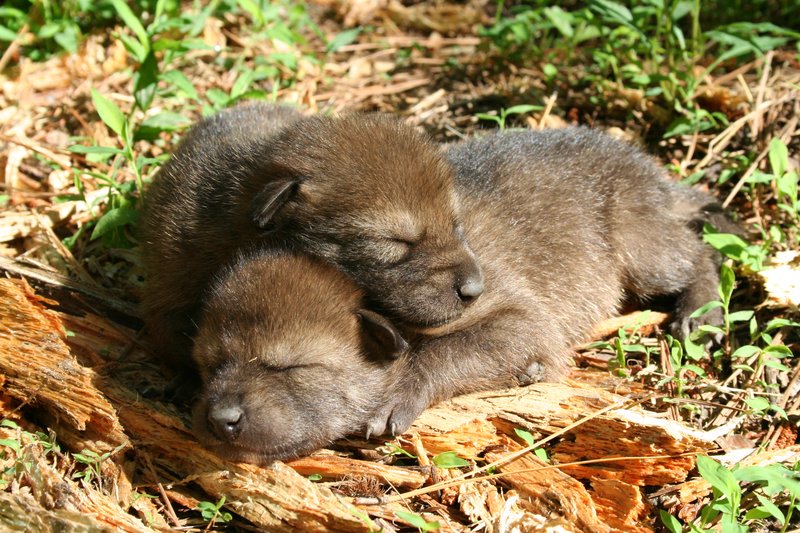For Immediate Release, September 17, 2024
|
Contact: |
Will Harlan, (828) 230-6818, [email protected] |
Five Red Wolf Pups Die After Vehicle Kills Their Father in North Carolina
Fewer Than 20 Red Wolves Remain in Wild
RALEIGH, N.C.— Five endangered red wolf pups have died after their father was killed by a vehicle in their last remaining refuge in eastern North Carolina, the U.S. Fish and Wildlife Service confirmed today.
“One vehicle strike ultimately killed six wolves,” said Will Harlan, a senior scientist at the Center for Biological Diversity. “These critically endangered species can’t afford to lose any more red wolves to vehicle collisions. The tragic deaths of these five pups shows how a single vehicle collision has ripple effects across the remaining red wolf population."
A 2-year-old female red wolf named Chance (designated 2413F by the Service) gave birth to five red wolf pups this spring with her breeding partner, 2444M. The father was killed by a vehicle soon after the pups were born. Five other red wolves have been killed by vehicles in the past 14 months.
Red wolves are monogamous and mate for life, and both parents participate in caring for their pups. After the death of her partner, Chance was likely unable to feed and care for her pups by herself as a first-time, single mother.
Fewer than 20 red wolves remain in the wild, making them the most endangered wolves on the planet. Vehicle collisions have become the leading cause of mortality for red wolves. Nearly all the vehicle strikes have occurred along or near Highway 64, which runs through the heart of the red wolves' only population
Wildlife crossings along Highway 64 would benefit more than two dozen other species, including black bears, bobcats, spotted turtles and river otters.
The crossings also protect human lives. Wildlife collisions kill more than 200 people in the United States every year and cause $10 billion in damages. Wildlife crossings have been shown to reduce vehicle collisions by 97%. Crossings along Highway 64 would safeguard animals and an increasing number of motorists traveling to and from the Outer Banks.
The Center and partners are leading a campaign to build wildlife crossings along Highway 64. An anonymous donor has pledged a $2 million match to fund them, and the campaign has already raised more than $1 million. Meeting the campaign’s fundraising goal is critical to securing federal funding that will match gifts five times over, ultimately raising more than $20 million to build wildlife crossings in the red wolf refuge.
The wildlife crossing fundraising deadline has been extended to October 31. Donations to the matching fund can be made at SaveRedWolves.org or by contacting Gretchen Mais at [email protected] or (520) 345-5733.
Background
Thousands of red wolves once roamed across most of eastern North America. By 1960 they were nearly extinct. Red wolves were saved by the Endangered Species Act and a captive breeding program and reintroduced red wolves into the wild in eastern North Carolina.
The Fish and Wildlife Service’s Red Wolf Recovery Program successfully grew the wild population to more than 120 wolves. The program was halted in 2015 and the population crashed to as few as seven wolves.
In 2021 the program resumed, but serious threats remain for these critically endangered wolves. Red wolves need wildlife crossings and additional reintroduction sites to ensure their genetic health and long-term survival.

The Center for Biological Diversity is a national, nonprofit conservation organization with more than 1.7 million members and online activists dedicated to the protection of endangered species and wild places.

